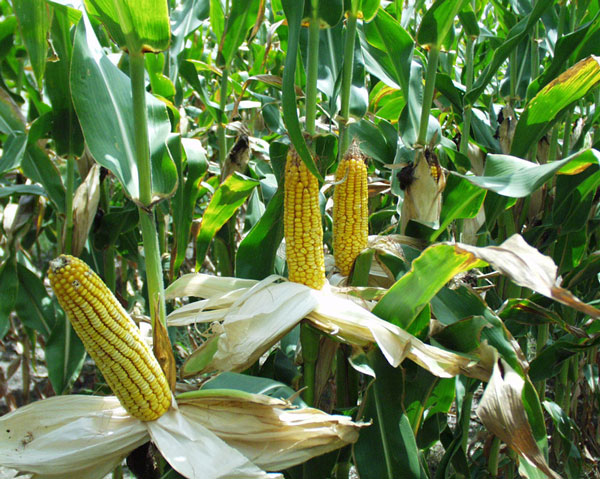Genetically modified plants still cause doubts
International experts believe that genetically modified plants may help increase agricultural production, while Vietnamese scientists still fear it will affect human health.
>>> Scientists warn about the reverse side of transgenic plants
Clive James, International President for the Acquisition of Agri-biotech Applications (ISAAA), said yesterday that GMC will help increase production of agricultural products with good quality.
"In the world, there have been nearly 20 years of GMC planting, very little risk. Vietnam should not ignore it when the benefits from GMC are being recognized by many countries in the world , " said Clive James.
Clive James said that in 2011 alone, an additional 12 million hectares were put into cultivation, an increase of 8% compared to 2010, and a 94-fold increase over 1996 - the time GMC was commercialized globally. .

Vietnam will conduct trials to grow genetically modified corn on a large scale.
"Genetic engineering has brought about sustainable socio-economic and environmental benefits , " James added.
In Vietnam, transgenic plants have been allowed to be tested and expected after 2015 to be grown on a commercial scale. The goal is that by 2020 GMC accounts for about 5% of the country's crop area.
"Currently related ministries in the process of building human resources, assessing impacts on health, evaluating in detail the risks of GMC before applying to our country" , Mr. Pham Van Toa, Institute of Agricultural Sciences Vietnam, said.
According to Mr. Toan, the goal of putting three varieties of maize, beans, and cotton on the previous trial is due to the huge demand for animal husbandry in Vietnam, while the crops often give low yields, still annually must import large quantities from abroad. Therefore, if applying genetic modification technology, Vietnam will improve production, save money, and stabilize livestock, Toan said.
Genetically modified plants cause much controversy in Vietnamese science circles. Some experts believe that Vietnam should not plant genetically modified plants because it has many potential risks of long-term harm to public health.
According to Professor Tran Dinh Long, Chairman of the Seed Association, GMC can cause allergies, make antibiotic greases, can create toxins and cause long-term toxicity to the human body.
"Antibiotic genes can be transferred into the intestinal microorganisms of humans and carnivores in genetic variation. This will lead to the creation of resistant microorganisms , " said Long. to speak.
In Long's view, Vietnam does not oppose genetically modified crops, "but how to approach them should be discussed . " He suggested that in the next 10 years should not plant genetically modified plants in our country.
GMC is a plant whose genetic material is modified according to human subjective will thanks to modern biotechnology, or gene technology. Worldwide, GMC has appeared two decades ago. In many countries, food made from genetically modified crops is clearly stated on the packaging for consumers to consider using.
- Genetically modified plants and the future in Vietnam
- Genetically modified insects threaten genetically modified plants
- The most common genetically modified foods
- Scientists warn about the reverse side of transgenic plants
- In 2011 began planting genetically modified plants
- Genetically modified carrots resist flu
- Genetically modified food in Vietnam ever since?
- Genetically modified corn is ineffective
- Scary effects of genetically modified plants
- Using genetically modified foods is prone to cancer
- Legislation of genetically modified corn harmful
- Raising awareness about genetically modified organisms
 Why do potatoes have eyes?
Why do potatoes have eyes? 'Tragedy' the world's largest carnivorous life: Death becomes ... public toilet
'Tragedy' the world's largest carnivorous life: Death becomes ... public toilet Tomatoes were once considered 'poisonous' for 200 years
Tomatoes were once considered 'poisonous' for 200 years Detecting microscopic parasites on human face
Detecting microscopic parasites on human face